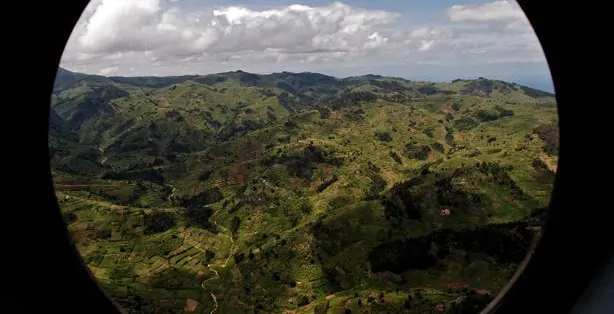The almost daily images of tornadoes, storms and floods that sweep across our nation are a constant reminder of the needs of those left suddenly without homes, without electricity, sometimes without family. For Tad Agoglia, these are a daily reality. As founder of First Response Team of America, Agoglia and his crew are some of the first to arrive after a natural disaster hits.
They’ve traveled from the wildfires and mudslides of California to the windstorms and mudslides of Oregon and Washington, the ice storms of Oklahoma, the tornadoes of the Tennessee-Alabama-Arkansas area, the floods of Arkansas and Indiana, the storms of the Midwest, and the hurricanes in New Orleans and Texas. Agoglia arrives with his own equipment as well as his team of four to open up roads, provide generators, remove dangerous debris and, in the case of floods, bring satellite communication systems and hovercraft boats to haul victims to safety. And he does all of this at no cost to anyone else. Not that he’s loaded, contrary to popular belief. “People think I’m wealthy,” he says. “It’s kind of comical because I don’t even own a home. I actually sold my truck and moved out of my apartment to put all of my personal finances into this project.”
Agoglia didn’t plan it to be this way. Originally, in 2005, he started a for-profit, contractual organization that helped clear out debris starting one to two months after a disaster had hit—the time it often took to draw up contracts and hire people. He found it increasingly difficult, however, to have to wait when help was needed on day one. So he made the decision to simply take his company and respond for free in order to be able to go in right away.
Recently, Agoglia and his team were in a small Iowan town after a tornado had leveled the city hall and killed several people. They spent the first week removing hundreds of truckloads of debris, recovering missing documents and equipment, and digging graves by hand. “That was a big impact for that community,” Agoglia says. “It really gave the community a boost to say, ‘You know, it’s not going to be like this forever; under that rubble is green grass, and there are people who came from New York to help—there are still good people in the world.'”
Moving forward, his energy not spent at disaster sites will be channeled toward expanding his organization and figuring out logistics, such as how to acquire more teams and position them strategically throughout the country, so they can arrive even more quickly. His biggest concern now is finding funding so he can continue his work as well as beef up his arsenal of equipment and volunteers. “Funding is tight,” he says. “My personal funds don’t last forever.”
But Agoglia will not be moving back to commercial work anytime soon. “It’s hard to say to a city that needs help, ‘Well, I can’t help you because I’m doing a contractual job in Mississippi,'” he says. “I have a very hard time saying no.”
Check out more at FirstResponseTeamofAmerica.org.





















